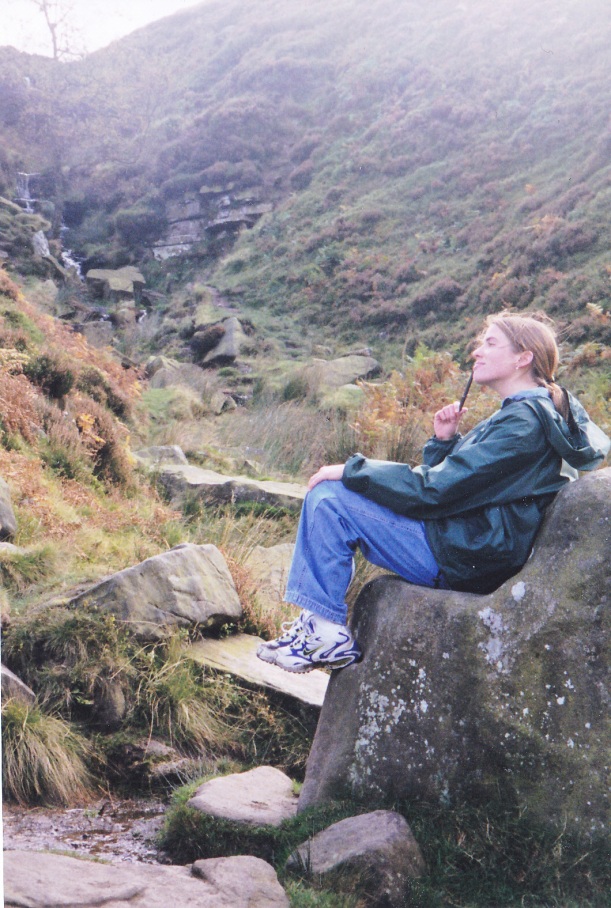The last two novels I read were Toilers of the Sea by Victor Hugo and Sylvia’s Lovers by Elisabeth Gaskell. I have already shared my thoughts on the first. The latter I read because it was the only fiction I had not yet read by Gaskell. She is one of my favorite novelists, but more on her works later. Perhaps I should have been deterred by Gaskell’s declaration that Sylvia’s Lovers was the “saddest story” she ever wrote. Spoiler alert: it really was! Why am I reading such downers lately? Artistically the tragic endings of these two novels make the stories work perfectly. Death is in harmony with the plot and character development. As far as life application goes, unhappy endings often promote more reflection, i.e. which Shakespeare play is more famous, Romeo and Juliet or All’s Well That Ends Well?
I thought I’d had enough introspection for a while and was determined that my next read would be something fun and light-hearted (like The Code of the Woosters by P.G. Wodehouse), but my film choice on Netflix a few weeks ago put a halt to those plans. While searching for some weekend entertainment, I stumbled across the 2009 version of Wuthering Heights. How had I missed this? I thought I had exhausted British literary film adaptations. Actually I’ve missed a lot of things between 2009 and now—2009 being the year #3 baby entered our home.
The film was incredibly gripping and effective at capturing the emotion of Emily Bronte’s novel. I vaguely remember the version with Jeremy Northam (but he’s the only thing I remember and Hindley Earnshaw’s character isn’t sufficiently dark when played by him). The actors of the 2009 film gave me great insight into the characters they portrayed, particularly Edgar, Heathcliff, Catherine Sr. and Hindley. Their performances left me torn as to whether I should love or hate the characters, and that is exactly how I think Bronte would have it. After this movie I decided to read Wuthering Heights….again.
There was no excuse not to start right away as I found three copies in my house. This was the third or fourth time reading it, the first being in AP English senior year. It was a much easier read now than in high school; I’m more comfortable with Yorkshire accents and I know the characters well enough that I wasn’t confused by the entangled family tree.
In college I had the opportunity to visit Haworth—the Bronte home. It is still one of my most treasured English memories. The wildness of the moors is an integral part of Wuthering Heights and I was swept away with the thoughts and passions of the novel as I hiked across them. Here I am at 19 sitting on a stone in the shape of a chair, where legend has it Emily would go to write.
Why is Wuthering Heights such a popular book? Most who read it have nothing in common with the culture or characters, and yet it somehow strikes a chord with a hugely diverse readership. It is an enduring classic of the English language, but my point here is not to go into the whys—there are undoubtedly countless scholarly writings on the subject.
I would, however, like to share a passage that jumped out at me this time. I was drawn to Edgar this time around. He is the faithful and steady husband. As a teenager I’m sure I was more attracted to the more passionate and reckless characters. Nelly Dean compares Edgar and Hindley with these words:
I used to draw a comparison between him [Edgar] and Hindley Earnshaw, and perplex myself to explain satisfactorily why their conduct was so opposite in similar circumstances [the death of a spouse]. They had both been fond husbands, and were both attached to their children; and I could not see how they shouldn’t both have taken the same road, for good or evil. But, I thought in my mind, Hindley, with apparently the stronger head, has shown himself sadly the worse and the weaker man. When his ship struck, the captain abandoned his post; and the crew, instead of trying to save her, rushed into riot and confusion, leaving no hope for the luckless vessel. Linton, on the contrary, displayed the true courage of a loyal and faithful soul: he trusted God; and God comforted him. One hoped, and the other despaired: they chose their own lots, and were righteously doomed to endure them.
Like millions of others I watched the season 4 premier of Downton Abbey on Sunday. Typically I wouldn’t look for life application from an elevated soap-opera, but that episode’s theme works here. Mary was given an ultimatum by her grandmother that echoes Bronte’s sentiments above. She could choose life or death (after suffering the loss of her husband). And the advice came from Maggie Smith—I might do anything she told me! Times come for all of us when we must make a similar choice. When faced with challenges do we abandon our post or sail our ship as best we can? It is not our circumstances that define us, but our reaction to them.
And now I resume my quest for comedy.

